This ‘X-Men’ veteran still wants to see the complete Dark Phoenix Saga on screen
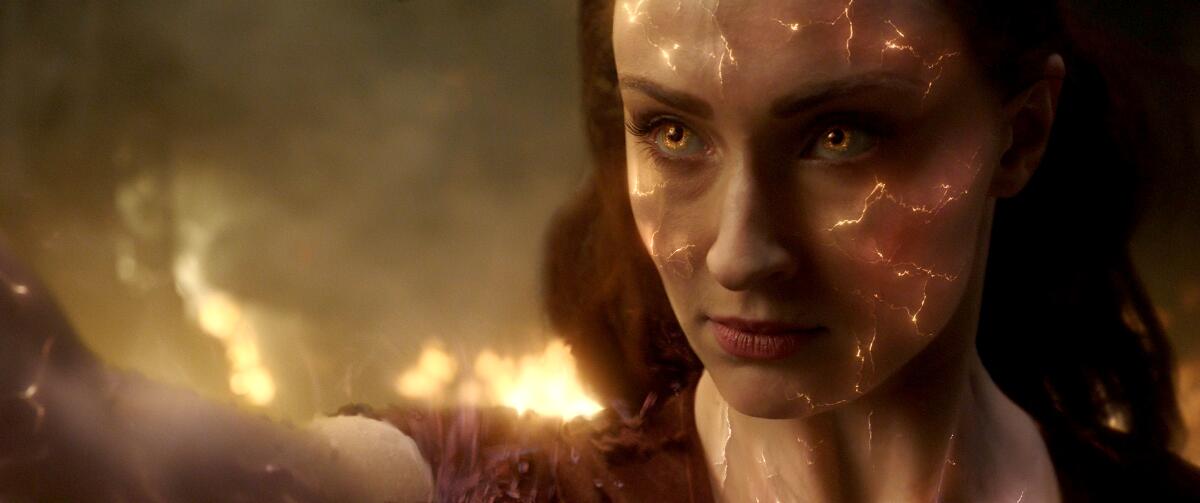
- Share via
Welcome to Screen Gab, the newsletter for everyone who’s ready for the X-Men to make a bigger mark in the Marvel Cinematic Universe.
Formerly held by Fox, which Marvel parent company Disney acquired in 2019, the famed mutants have been on the back burner in recent years, as Phase 4 has come to an end and Marvel has expanded its footprint in television. But recent reports suggest that Marvel Studios is in the early stages of developing a new X-Men movie — one this week’s guest, veteran “X-Men” scribe and “Invasion” creator, Simon Kinberg, has some thoughts about.
Also in Screen Gab No. 104, three nonfiction streaming recommendations for your weekend, including two documentary profiles and a whip-smart Korean reality competition.
The complete guide to home viewing
Get Screen Gab for everything about the TV shows and streaming movies everyone’s talking about.
You may occasionally receive promotional content from the Los Angeles Times.
ICYMI
Must-read stories you might have missed
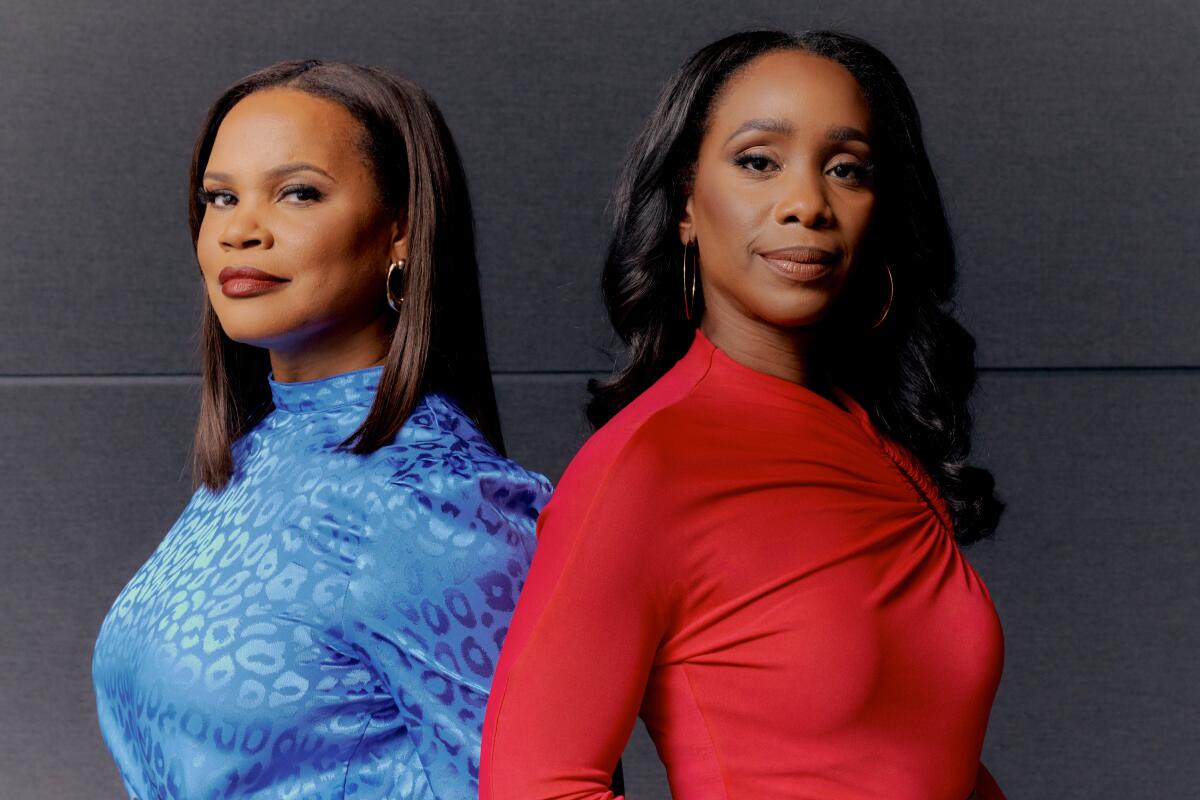
Laura Coates and Abby Phillip aren’t ‘mouthpieces.’ CNN hopes they can revive the brand: Laura Coates and Abby Phillip step into prime-time anchor chairs Monday as CNN attempts to regain its footing after two years of controversy and chaos.
‘Final Destination’ creator Jeffrey Reddick on how the horror franchise should evolve: In an interview with The Times, Reddick discusses his upbringing, how he sold his script and where the horror series about cheating death went wrong.
‘Avatar’ live-action series: First look at Fire Lord Ozai, General Iroh and more: Netflix has released new images of its live-action “Avatar: The Last Airbender” series featuring Daniel Dae Kim and more of the series’ stars.
‘Titanic’ made Leonardo DiCaprio a Hollywood heartthrob. He’s been avoiding it ever since: 25 years after becoming king of the world, DiCaprio is less Hollywood’s biggest movie star than its best-paid character actor. What happened to Leomania?
Turn on
Recommendations from the film and TV experts at The Times

“AKA Mr. Chow” (HBO, Max)
I first became aware of Michael Chow — “AKA Mr. Chow,” to borrow the title of Nick Hooker’s engaging documentary, premiering Sunday on HBO — from a portrait by David Hockney. Only later did I associate him with the (expensive, not always well reviewed) restaurants that bear his name. But Chow turns out to have led more lives than that, and not untouched by tragedy; his parents were victims of China’s Cultural Revolution. Along with running restaurants — which is not to say cooking in them, but creating an atmosphere — he was (and is again) an artist and an actor, and the film follows him from Shanghai in the 1940s, to boarding and art school in England in the ‘50s, to Swinging London in the ‘60s — where he established his policy of trading food for artworks — to the temple of celebrity that was New York in the ‘70s. And on and on. Stories of life among the beautiful people can be tiresome, but Chow emerges as a likable, surprisingly relatable character. Now an enviably vigorous octogenarian, back making art as a painter of large-scale canvases, his own reminiscences and observations drive the story; but there is friendly testimony as well from friends like Fran Lebowitz and LL Cool J and family members, including two out of four wives. —Robert Lloyd
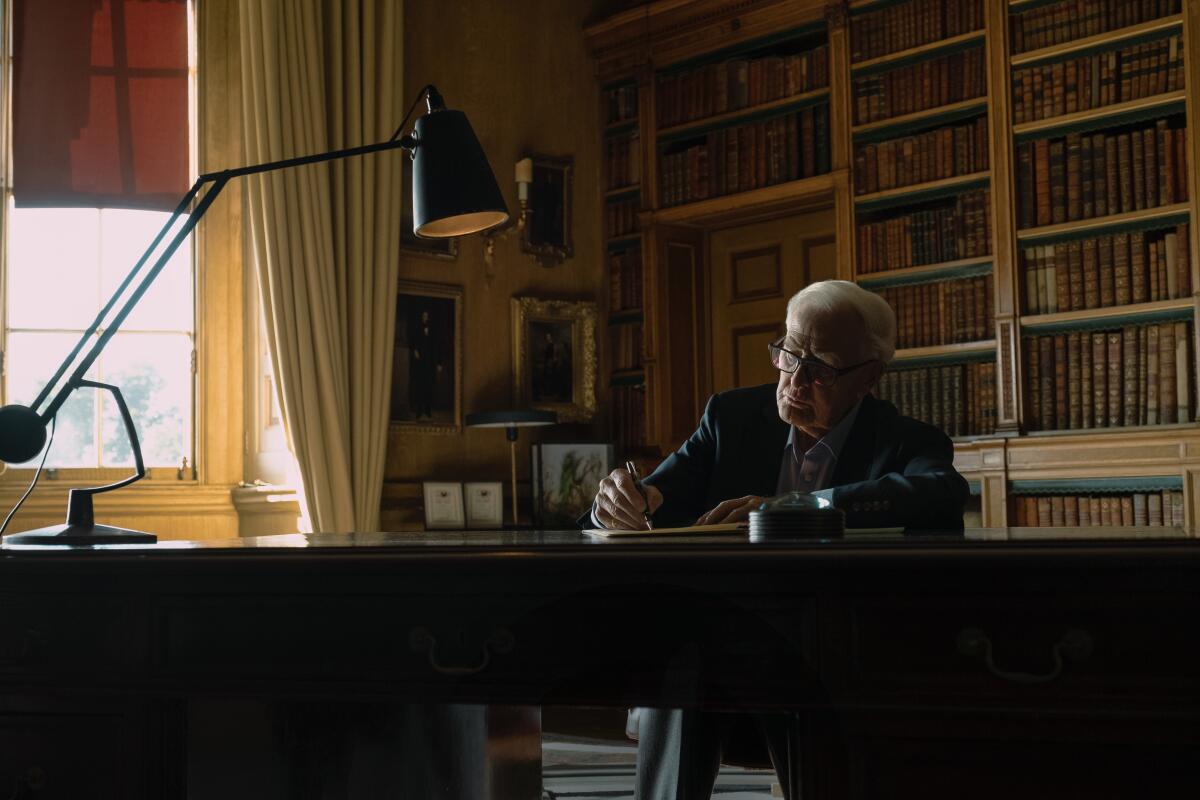
“The Pigeon Tunnel” (Apple TV+)
Nominally, “The Pigeon Tunnel” is a biographical documentary about the late David Cornwell, better known as legendary spy novelist John le Carré, and at the center of which is the author’s final interview before his death in December 2020. As is filmmaker Errol Morris’ wont, though, it’s never quite so simple. Drawn from and largely hewing to le Carré’s 2016 memoir, it is colored by the same existential metaphor — about shooting pigeons at a coastal respite — and marred by the same lacunae — le Carré’s bone-deep aversion to discussing his personal life outside his rather eccentric parents. And yet, buoyed by its subject’s narrative genius and its maker’s interrogatory own, “The Pigeon Tunnel” rather soars, arranging le Carre’s upbringing; work in the spy service; novels; and the remarkable oeuvre of film and TV adapted from them into a portrait as vivid as any of Morris’ more combative profiles, from Robert S. McNamara (“The Fog of War”) to Donald Rumsfeld (“The Unknown Known”). Perhaps most intriguing, and affecting, is Morris’ persistent question as to the boundary between an interview and an interrogation, aimed at a storyteller as skillful, and as fascinated by “meta-questions,” as himself. Indeed, though he might well challenge me even for raising the suggestion, I say “The Pigeon Tunnel” is the closest the documentarian, 75, has yet come to a self-portrait. I hope one day he makes one for real. —Matt Brennan
Catch up
Everything you need to know about the film or TV series everyone’s talking about
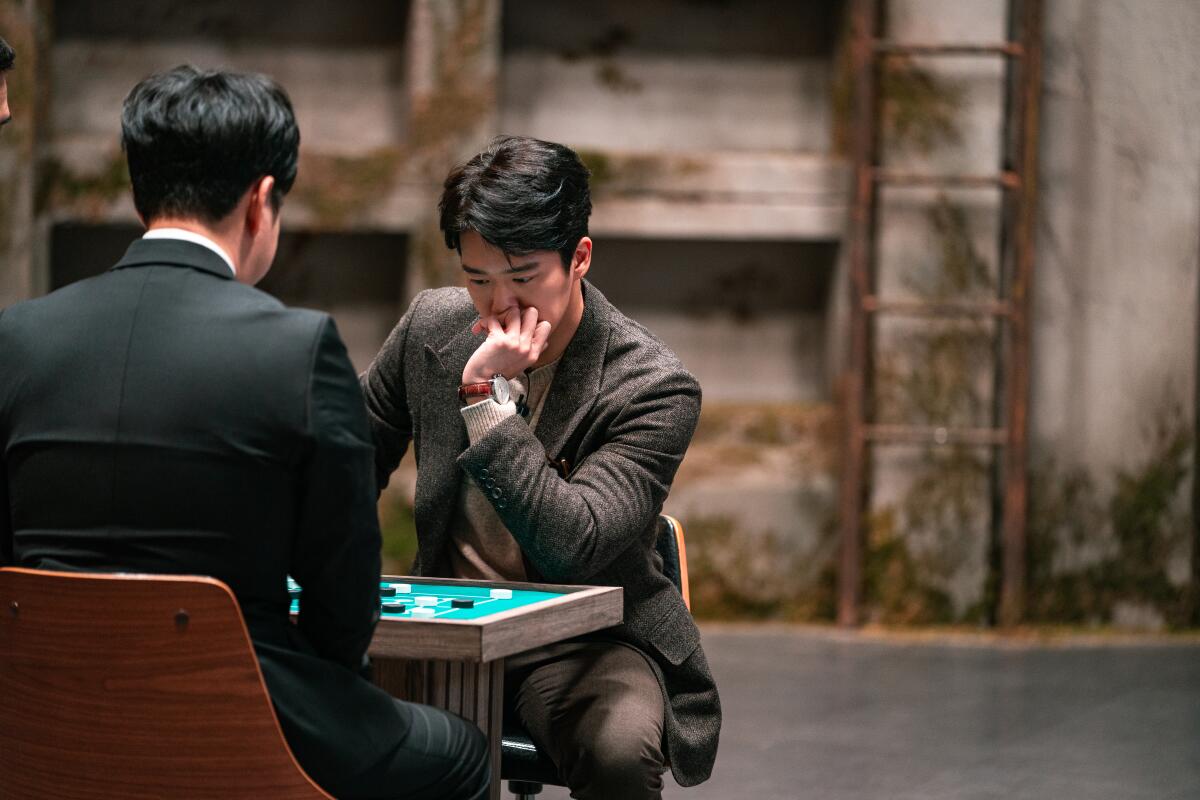
At last, it’s “The Hunger Games” for nerds!
Well, not really. But Netflix’s Korean import “The Devil’s Plan” is a competition show without a physical component — it’s all logic puzzles and mind games. And it’s awesome.
The stressful and exciting first season gathers 12 intellectually formidable contestants … who are also darn good on TV, let’s be honest. There are no Nobel laureates, but the cast includes a science-focused YouTuber, a multilingual lawyer, a doctor, professional gamers and a couple of actors (who happen to hold degrees in mechanical engineering and anthropology). There’s even a boy-band member. And they turn out to be very well suited to the challenges. When thrown into a game of Mathematical Hi-Lo — Hi-Lo Poker in which symbols such as plus, minus or square root substitute for face cards, and are used in tandem to produce target solutions — they have no problem performing calculations to two or more decimal places on the fly. In a clutch situation, one contestant performs an astounding feat of memory. Back against the wall, another player turns the tables in an important board-game faceoff. Every misstep is magnified.
“The Devil’s Plan” is not without its flaws: Early episodes establish an ugly dynamic in which weaker players gang up on a handful of stronger ones, ousting some in cowardly fashion. Luckily, later episodes course-correct, leveling the playing field with the revelation of a secret puzzle the very existence of which only the sharpest can detect. The result is an often nail-biting competition featuring people it’s easy to root for …. and some it’s easy to root against.
Plus, the games themselves are so excellent the producers are leaving money on the table by not packaging play-at-home versions. They include diabolical spins on Connect 4/Tic-Tac-Toe that elevate the familiar idea to a brain-buster; a clever territory-claiming board game; and a complex version of the popular party game Mafia. Imagine that identity-solving puzzle with twists in the form of unique abilities and goals, and played by very smart people. It’s surprisingly tense and fun. As is the rest of the first season of “The Devil’s Plan.” —Michael Ordoña
Guest spot
A weekly chat with actors, writers, directors and more about what they’re working on — and what they’re watching
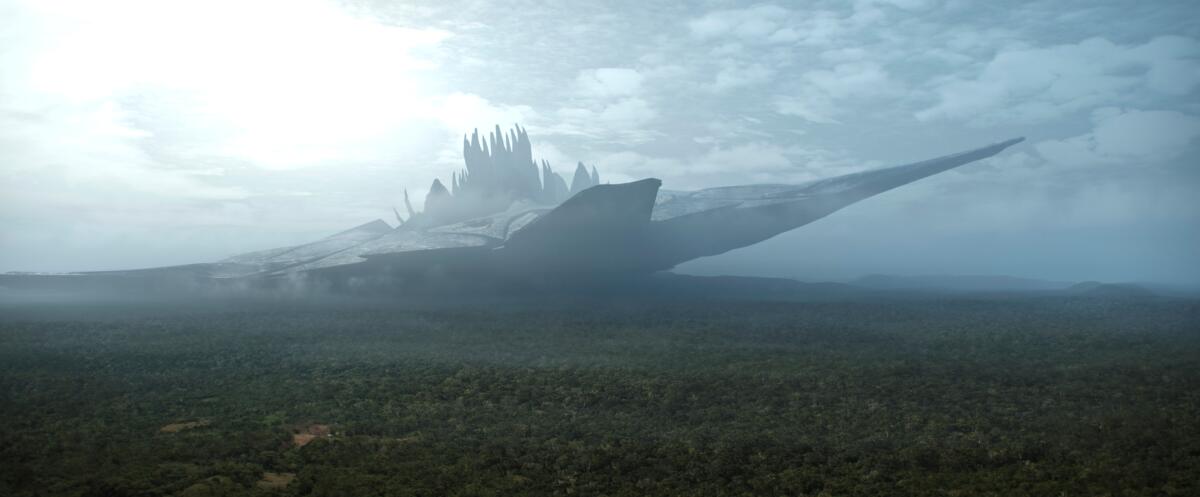
In the years since 2019’s “Dark Phoenix,” his last foray into the world of “X-Men,” Simon Kinberg has had other endeavors to keep him occupied — most notably his globe-spanning, multi-perspective sci-fi drama “Invasion” (Apple TV+), created with “Hunters’” David Weil and now nearing the end of its second season. But that’s not to say Kinberg, who also counts “The Last Stand,” “Days of Future Past” and “Apocalypse” among his credits, doesn’t have thoughts about the future of the franchise. He stopped by Screen Gab recently to chat about finding a new approach to alien invasions, the “X-Men” story he’s still waiting to see on screen, and more. —Matt Brennan
What have you watched recently that you are recommending to everyone you know?
“The Last of Us” [HBO, Max] is my favorite new show in a long, long time, and already an all-time favorite. For someone who tries to blend genre with character in everything I do, I can’t think of a better example of epic, intimate storytelling. The third episode (the love story) ripped my heart out of my chest, and made me want to quit writing because it was so damn good.
What is your go-to “comfort watch,” the movie or TV show you go back to again and again?
I use movies and shows the way most people use songs to get them through a hard time/good time/anytime. If I absolutely had to pick one desert-island favorite, it would be the show “Friday Night Lights” [Netflix, Prime Video, Hulu]. I love every single character. The way the music, the filmmaking, the milieu all create a feeling of fragile hope and innocence just moves me every time.
Rather than focus on a single heroic defender of Earth and his family as is common in the genre, “Invasion” views an alien invasion through five disparate characters. What is most appealing about that structure to you as a writer? What is most challenging?
When I first conceived the show, I pitched it as “‘War of the Worlds’ meets ‘Babel.’” In most alien invasion stories, you see it primarily from one point of view, like you say, and usually an American or British one, but I always found myself wondering how the rest of the world would react. The most appealing thing about telling the story from disparate perspectives is seeing how different cultures, different societies, deal with trauma. It’s a chance to tell all these little human stories set against the massive backdrop of this shared experience. For me, it keeps things fresh. The hardest part is balancing them all, making sure they all have enough screen time to breathe and evolve at their own pace. And there’s a challenge to synthesizing all that so there’s a rhythm, a harmony to the storytelling that feels organic and motivated. And there’s a challenge to giving every episode a shared theme and overriding emotion despite these different folks going through very different things.
Recent reports suggest early development is underway at Marvel on a new “X-Men” project — a subject you know plenty about given your filmography. What story in the X-Men universe would you tell (or re-tell) now if you could, and why?
It’s funny, Kevin Feige was the person who brought me onto my first X-Men movie when he was working with Avi Arad. This was pre-MCU, literally 20 years ago. We were kids. I don’t think I ever could have imagined my relationship with the universe would span 16 years, 10 movies and a bunch of TV shows. I really grew up with the X-Men, first as a child with the comics, then as an adult with the films. So yes, I feel like I know a lot about that universe, but I also feel like we were always trying to learn more and keep evolving. It’s hard to pick one story, because there are so many I love, and honestly “Days of Future Past” [Max] was my dream run to adapt. In terms of re-telling, there will always be a part of me that wishes I got to tell the full Dark Phoenix Saga with Lilandra, the Shi’ar and the Hellfire Club, the way I had once outlined it as a two-part movie. I think it’s too much story to fit in one film, so I’d love to see the full, sprawling version of that. As a fan, I’m really excited to see what Kevin does with the X-Men because I know how much he loves them. I feel like I got to be their caretaker for a little while, and I know they’re in good hands now.
The complete guide to home viewing
Get Screen Gab for everything about the TV shows and streaming movies everyone’s talking about.
You may occasionally receive promotional content from the Los Angeles Times.



